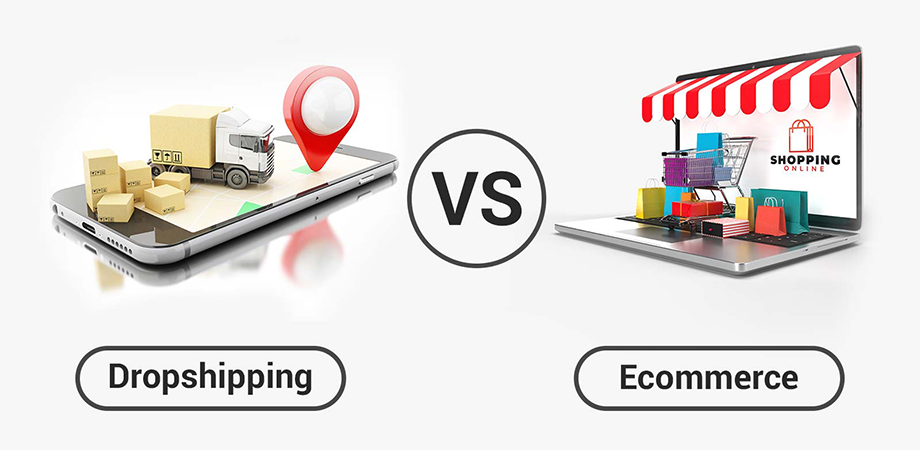What is the difference between ecommerce and dropshipping ?

Understanding Dropshipping
Dropshipping is a retail fulfillment method where an online store doesn’t keep the products it sells in stock. Instead, when a store sells a product, it purchases it from a third-party supplier who then ships it directly to the customer. In other words, the dropshipper acts as a middleman, connecting customers with suppliers and earning a profit on the price difference between wholesale and retail.
Understanding E-commerce
E-commerce involves the purchase and sale of goods and services online and is actually just one part of e-business. An e-business involves the entire process of running a company online. Put simply, it’s all of the activity that takes place with an online business.
What is the difference between ecommerce and dropshipping ?
Ecommerce and dropshipping are two terms that are often used interchangeably in the world of online retail. However, there are significant differences between the two business models that are important for entrepreneurs to understand. While both involve selling products online, the key distinction lies in how inventory is managed and fulfilled. In this blog post, we will explore the differences between ecommerce and dropshipping, and how each model can impact your online business. Stay tuned to gain a clear understanding of these two popular retail strategies.
What is the difference between ecommerce and dropshipping? Are you looking to start an online business but unsure of the difference between ecommerce and dropshipping? You’re not alone. Many aspiring entrepreneurs are confused about these two terms and how they differ. Let’s break it down.
Ecommerce is a broad term that refers to any type of business conducted online. This can include selling physical products, digital products, or services through a website or other online platform. When you think of popular ecommerce sites like Amazon or eBay, you are thinking of businesses that sell products online through their own websites or third-party marketplaces.
On the other hand, dropshipping is a specific type of ecommerce business model where the seller does not keep any inventory on hand. Instead, when a customer places an order, the seller purchases the product from a third-party supplier who then ships it directly to the customer. This means that the seller never has to handle or store any inventory, which can greatly reduce overhead costs and eliminate the need for a physical storefront.
So, What is the difference between ecommerce and dropshipping? in essence, all dropshipping businesses are ecommerce businesses, but not all ecommerce businesses are dropshipping businesses. The key difference lies in how the products are sourced and fulfilled.
If you’re considering starting an online business, it’s important to understand the distinction between ecommerce and dropshipping. Both have their own advantages and challenges, so it’s important to do your research and decide which model best fits your goals and resources.
Ecommerce is a general term for any type of online business, while dropshipping is a specific business model within the ecommerce realm. By understanding the difference between these two terms, you can make an informed decision about how to start and run your online business.
Understanding the key differences between ecommerce and dropshipping is crucial for anyone looking to enter the world of online retail. What is the difference between ecommerce and dropshipping, While ecommerce involves the buying and selling of products online, dropshipping eliminates the need for inventory management by allowing retailers to fulfill orders through third-party suppliers. By grasping the nuances of both models, entrepreneurs can make informed decisions to optimize their online business strategies.
In conclusion, the key difference between e-commerce and dropshipping lies in the logistics and inventory management aspect. E-commerce involves handling and stocking inventory, while dropshipping eliminates the need for storing products and managing logistics. Understanding these distinctions is crucial for businesses looking to enter the online retail sector. To delve deeper into this topic, consider seeking expert advice or conducting further research.





